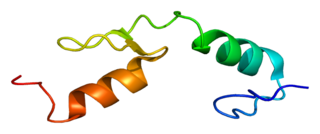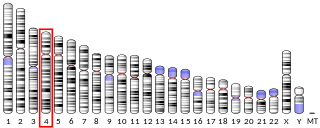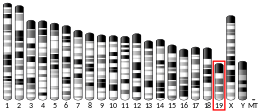Hereditary spastic paraplegia (HSP) is a group of inherited diseases whose main feature is a progressive gait disorder. The disease presents with progressive stiffness (spasticity) and contraction in the lower limbs. HSP is also known as hereditary spastic paraparesis, familial spastic paraplegia, French settlement disease, Strumpell disease, or Strumpell-Lorrain disease. The symptoms are a result of dysfunction of long axons in the spinal cord. The affected cells are the primary motor neurons; therefore, the disease is an upper motor neuron disease. HSP is not a form of cerebral palsy even though it physically may appear and behave much the same as spastic diplegia. The origin of HSP is different from cerebral palsy. Despite this, some of the same anti-spasticity medications used in spastic cerebral palsy are sometimes used to treat HSP symptoms.

Zinc finger FYVE domain-containing protein 9 or SARA is a protein that in humans is encoded by the ZFYVE9 gene. SARA contains a double zinc finger.

In molecular biology the FYVE zinc finger domain is named after the four cysteine-rich proteins: Fab 1, YOTB, Vac 1, and EEA1, in which it has been found. FYVE domains bind phosphatidylinositol 3-phosphate, in a way dependent on its metal ion coordination and basic amino acids. The FYVE domain inserts into cell membranes in a pH-dependent manner. The FYVE domain has been connected to vacuolar protein sorting and endosome function.

FYVE, RhoGEF and PH domain-containing protein 1 (FGD1) also known as faciogenital dysplasia 1 protein (FGDY), zinc finger FYVE domain-containing protein 3 (ZFYVE3), or Rho/Rac guanine nucleotide exchange factor FGD1 is a protein that in humans is encoded by the FGD1 gene that lies on the X chromosome. Orthologs of the FGD1 gene are found in dog, cow, mouse, rat, and zebrafish, and also budding yeast and C. elegans. It is a member of the FYVE, RhoGEF and PH domain containing family.

The human gene SPAST codes for the microtubule-severing protein of the same name, commonly known as spastin.

Paraplegin is a protein that in humans is encoded by the SPG7 gene located on chromosome 16.

Spartin is a protein that in humans is encoded by the SPG20 gene.

Zinc finger protein 40 is a protein that in humans is encoded by the HIVEP1 gene.

Zinc finger FYVE domain-containing protein 16 is a protein that in humans is encoded by the ZFYVE16 gene.

Ankyrin repeat and FYVE domain-containing protein 1 is a protein that in humans is encoded by the ANKFY1 gene.

Zinc finger FYVE domain-containing protein 1 is a protein that in humans is encoded by the ZFYVE1 gene.

Transcription factor HIVEP3 is a protein that in humans is encoded by the HIVEP3 gene.

FYVE, RhoGEF and PH domain-containing protein 2 (FGD2), also known as zinc finger FYVE domain-containing protein 4 (ZFYVE4), is a protein that in humans is encoded by the FGD2 gene.

Gap junction gamma-2 (GJC2), also known as connexin-46.6 (Cx46.6) and connexin-47 (Cx47) and gap junction alpha-12 (GJA12), is a protein that in humans is encoded by the GJC2 gene.

Acetyl-coenzyme A transporter 1 also known as solute carrier family 33 member 1 (SLC33A1) is a protein that in humans is encoded by the SLC33A1 gene.

Zinc finger, FYVE domain containing 26 is a protein that in humans is encoded by the ZFYVE26 gene.

Zinc finger FYVE-type containing 28 is a protein that in humans is encoded by the ZFYVE28 gene.

AP-5 complex subunit beta (AP5B1) is a protein that in humans is encoded by the AP5B1 gene.

AP-5 complex subunit mu (AP5M1) is a protein that in humans is encoded by the AP5M1 gene.

AP-5 complex subunit sigma (AP5S1) is a protein that in humans is encoded by the AP5S1 gene.


















